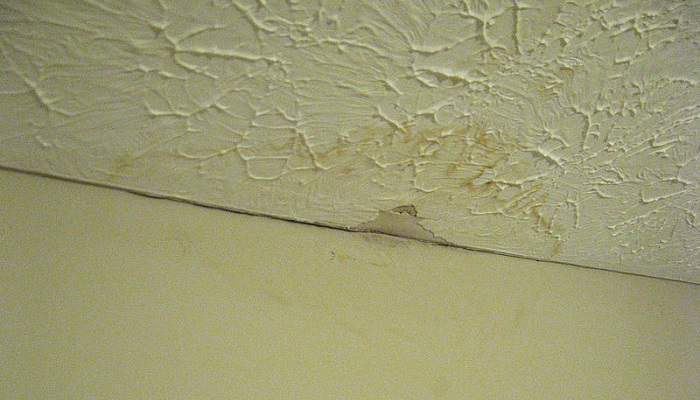
How to Repair Water Damaged Ceilings
By Steve F
Most people agree that ceiling water damage can be very frustrating, for the fact that you may need to spend a lot of money in repairing or replacing the entire ceiling; depending on the intensity of the damage.
Plaster or sheet rock is most widely used as material for ceilings in the US. The downside of these materials is that water tends to build up and saturate the surface, until swelling and leaking begin. The end result can be a severely damaged ceiling and home, with the possibility of collapse or compromising the integrity of the structure.
The most effective way to handle this problem is by hiring a water extraction company. Such companies have the proper experience and knowledge required in handling the water damaged areas while preventing future mold outbreaks.
Although hiring a professional is highly recommended, here are some simple tips to help you if you decide to tackle the job yourself.
Step 1 – Locate
The first step involves making sure you properly locate all areas where the leak may be coming from. This step is crucial for ensuring all possible holes are located to be taken care of. Otherwise the risk for leaks in the future increases.
You should be able to identify and stop the water source fairly easy. This step is very important. Failure to do so might increase the water damaged ceiling repair cost by a big margin. If a person is not able to identify the source of water, all the repairs will be in vain.
Step 2 – Drying
This next step involves drying the water damaged areas. Before commencing this procedure, ensure you protect both your furniture and floor by spreading tarps over them. A person can use a towel or a vacuum cleaner to dry the ceiling. It is advisable to clean both the interior and exterior of the ceiling.
This step might involve stabbing through the saturated ceiling for water to pour down. This process is very crucial as it helps prevents molds from both spreading and forming. The water cleanup process is very important as it helps eliminate the possibility of molds developing.
Don’t forget to remove the damaged parts of the ceiling. Damaged ceilings can be either loose or bulging. Such ceiling parts should be scraped out. A person can use various home equipment; ranging from knives and paint scrapers to remove the damaged parts.
After all water has been let to drip from the affected areas, use a couple fans and air dry the damaged ceiling until completely dry.
Step 3 – Repair
The next step involves preparing the ceiling for painting. Some heavy repair of drywall may be needed at this step. First cover all holes with the same material used for your ceiling if need be. Next apply any textures needed to blend in the ceiling pattern.
Use a sandpaper to smooth over the ridges between the clean and affected regions.
Step 4 – Paint
Lastly, a person should apply a primer coating on any repaired or stained drywall. You should give the primer coat time to dry out. Second coat might be necessary; depending on the visibility of the stain.
Now if this whole process seems beyond your level of expertise, or simply not worth the time and headache, call an experienced restoration specialist. They will have all the tools and qualifications to flawlessly take care of any water extraction, and renovations.
Costs of Repair
I’m sure you would like to know how much a renovation like this could cost. Before even mentioning ceiling leak repair costs, it is important to understand that this is dependent on the scope of the problem.
The damage and costs can increase dramatically the longer the water sits without repair. This can be due to the immediate formation of molds that occur with humid dark environments. It is therefore important to react quickly before the damages compound with the possibility of needing to purchase a new ceiling all together.
Ceiling damage costs can sometimes be covered through your insurer, depending on the situation. This is another reason why it is sometimes better to hire out, as they will be better able to asses if you qualify for such.
For more info and resources visit Service Restoration
Article Source: How to Repair Water Damaged Ceilings
Image by Ed!


